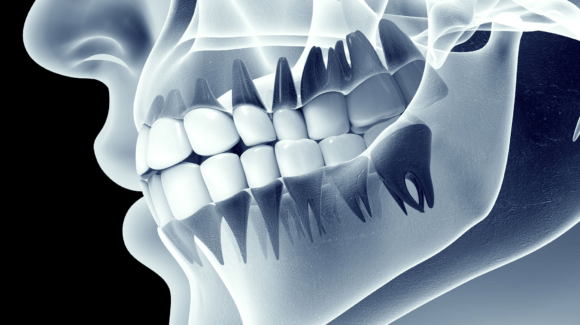Chronic Headaches and Jaw Problems from temporomandibular joint idsorders
Do you have headaches or chronic pain in your mouth and jaw area? Many people around the world have a problem with their jaws called TMJ-TMD. TMD causes neck and facial pain due to the jaws working incorrectly. The disorder is caused when the temporomandibular joint gets overused or inflamed.

Chronic Headaches and Jaw Problems from temporomandibular joint idsorders
Do you have headaches or chronic pain in your mouth and jaw area? Many people around the world have a problem with their jaws called TMJ-TMD. TMD causes neck and facial pain due to the jaws working incorrectly. The disorder is caused when the temporomandibular joint gets overused or inflamed.
Some TMJ symptoms include:
- Jaw joint pain.
- Stuffiness or ringing in the ears.
- Ear pain
- Popping or clicking sounds when the jaw moves.
- Swelling of the face or around the jaws.
- Muscle spasms in the face or neck.
- Chewing problems.
- Teeth that don’t mesh.
- Limited movement in the jaw.
TMJ symptoms must be evaluated by an orthodontist for a concrete diagnosis. Once you have a TMJ-TMD diagnosis, you can begin to work with your orthodontist on solutions to correct your jaw, neck, and facial pain and TMJ treatment. TMJ specialists have several ways of easing your jaw pain, relieving your headaches, making talking easier and avoiding chewing pain.
What Causes TMJ-TMD Pain?
When your temporomandibular joint doesn’t work correctly, you have TMJ-TMD. If you are unable to open and close your mouth or move your jaw from side to side appropriately, you will be unable to chew, yawn or talk without pain. There are several causes of TMJ-TMD pain. Here are a few of the frequently diagnosed causes of this type of pain.
Grinding Teeth
Clenching or grinding your teeth remains a frequent cause of TMJ-TMD discomfort. People grind their teeth for a plethora of reasons. Bruxism means grinding teeth.Some of the reasons people grind their teeth include:
- Stresses in daily life.
- Grinding your teeth unconsciously in your sleep.
- Chronic pain can cause teeth grinding.
- Misaligned or crooked teeth.
- Sleep apnea.
People have very little control over whether or not they grind their teeth. If you sleep with someone, they may be able to tell you whether or not you grind your teeth. The only method of discovering whether you grind your teeth is if you have a neck, head or jaw pain when you wake up after sleeping.
Grinding your teeth may cause damage to your teeth as well as causing TMJ-TMD pain. If you suspect you grind your teeth, contact your TMJ specialist soon for suggestions on ways to prevent teeth grinding.
Crooked Teeth
Crooked or misaligned teeth may cause stress on your jaw joint. Your jaw will become stressed, may become inflamed, and soreness can ensue. The cure for TMJ-TMD is to have your teeth straightened.
A TMJ specialists can correct any crooked teeth or other bite issues and take the stress and strain from your jaw joint. Fixing your bite should keep your jaw joint from becoming irritated and prevent related TMJ pain.
Jaw Injury
Jaw injury such as accidents or having your jaw broken may be the cause of your jaw disorder. Any incident occurring in the jaw area needs to be analyzed by your orthodontist for correction and proper TMJ treatment.
Arthritis in the Jaw
If you have arthritis in your jaw, you may also have arthritis in other areas of your body. Any arthritis causes inflammation around a joint. So if you have arthritis in the jaw, your jaw becomes inflamed and sore. Your orthodontist can help you determine whether arthritis is causing your jaw pain and recommend ways to reduce the swelling and inflammation in your jaw.
Temporomandibular joint idsorders Treatment
Traditional Braces
Braces treat misaligned teeth so that an individual’s bite is corrected. Placing the teeth correctly in the mouth allows the jaws to move correctly and keeps talking and eating from being uncomfortable. Braces include wires and brackets placed on the teeth that gradually move the teeth into the proper position over a period.
Invisible or Incognito Braces
Your TMJ specialist can apply invisible or Incognito braces. These braces work in a similar way as traditional braces but attach to the backs of your teeth. They have the advantage of being invisible, while giving you the straightening powers of traditional braces.
Invisalign
Invisalign realigns a person’s teeth using clear trays placed over the teeth. These clear trays gradually move teeth into the prescribed position. Misalignments and bite problems as well as straightens teeth, which help teeth look better. TMJ-TMD patients who use Invisalign will need to see their TMD specialist every two weeks to obtain a new tray.
Jaw Splints or Mouth Guards
If you grind your teeth, your TMJ specialist may fit you for a mouth guard. Mouth guards or jaw splints look like football mouth guards. Your orthodontic specialist will take a mold of your teeth, and then make a protective covering for either your teeth. The appliance can be worn any time except while eating. Wearing this mouth guard protects your teeth if you grind unconsciously during your sleep and protects your teeth.
